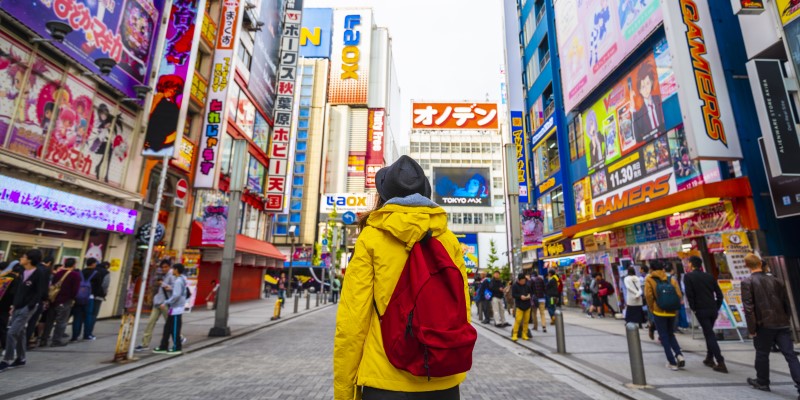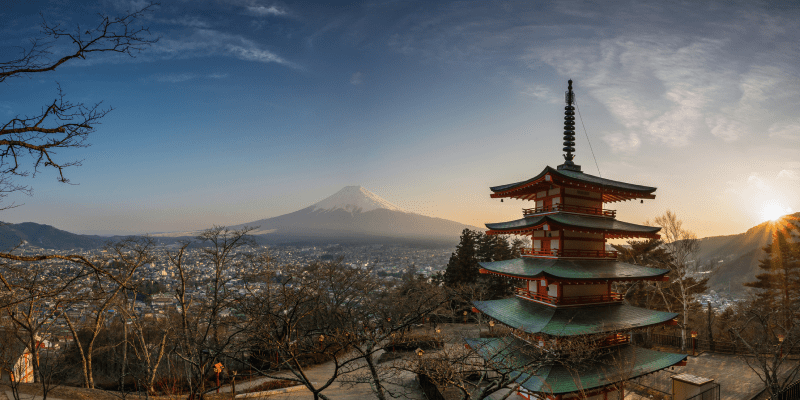Jump to section: Cover options | Why choose Medibank Travel Insurance | Japan travel advice | Snow and Ski cover | Frequently asked questions

International Comprehensive Plan
Travel cover for overseas medical and dental emergencies, plus inclusions for unforeseen cancellations and valuables like laptops and cameras.
- 24-hour emergency assistance
- 21 day cooling off period1
- Overseas medical/dental expenses
- COVID-19 benefits
- Up to $25k luggage cover2
- Rental car insurance excess
- Cancellation & amendment fees3
- Cover for missed connections4

International Annual Multi-Trip
Annual Multi Trip Plan includes the same benefits as International Comprehensive Plan for multiple trips (up to the duration specified) within 12 months.5
- 24-hour emergency assistance
- 21 day cooling off period1
- Overseas medical/dental expenses
- COVID-19 benefits
- Up to $25k luggage cover2
- Rental car insurance excess
- Cancellation & amendment fees3
- Cover for missed connections4

International Medical Only Plan
Our basic international travel insurance provides cover for Overseas Medical and Hospital Expenses that occur whilst you're travelling.
- 24-hour emergency assistance
- 21 day cooling off period1
- Overseas medical/dental expenses
- COVID-19 benefits
- Cover for luggage
- Rental car insurance excess
- Cancellation & amendment fees
- Cover for missed connections
When planning a trip to Japan, travel insurance can help provide cover for unexpected incidents to provide you with extra peace of mind whilst travelling across the Land of the Rising Sun.
All Medibank Travel Insurance options include hospital accident and evacuation expense cover whilst overseas6 and depending on which plan you choose you could also have cover for:
$Unlimited cancellation costs on an International Comprehensive Plan
What happens if you have to cancel your overseas adventure due to certain unforeseen circumstances like a family emergency? With Medibank's Comprehensive Travel Insurance plans, you'll have cover for the unused portion of accommodation and other prepaid costs.3
COVID-19 cover
COVID-19 can disrupt even the best laid travel plans. All Medibank's international policies include benefits related to COVID-19 - such as $unlimited cover for overseas medical costs6 if you're diagnosed with COVID-19 by a qualified medical practitioner while travelling.
Luggage insurance and personal effects cover
Help protect your valuables, with cover for lost, stolen or damaged items. Get up to $25,000 cover on our International Comprehensive Plan.2
Emergency assistance whilst travelling
Every travel insurance policy with Medibank comes with 24-hour emergency assistance. That means you can speak to our dedicated team of doctors, nurses, travel consultants and case managers 24 hours a day, 365 days a year.

Multi-award winning travel insurance
We're proud to be winners of Mozo's Experts Choice Awards in 2022 & 2023 and Mozo's People's Choice Award in 2024.

When it comes to planning your trip, we recommended taking some time to learn about Japanese etiquette, such as removing your shoes when entering a property, bowing when greeting others and using chopsticks properly - a good life skill to have regardless of where you are travelling!
You might also turn a few heads by learning some basic Japanese phrases, which will not only enhance your ability to communicate with locals but it will also show respect.
What is the best time to visit Japan?
For Australians travelling to Japan, the most popular times to visit are in spring (March to May) and autumn (September to November). Spring in Japan is famous for its cherry blossoms, while autumn showcases the country’s vibrant foliage. Both seasons offer pleasant temperatures for travellers, which makes exploring cities like Tokyo, Kyoto and Osaka a dream.
If you're thinking about alternative times to visit Japan, be aware that summer (June to August) can be hot and humid. Winter (December to February), on the other hand, can get extremely cold. If your visit to Japan includes hitting the slopes, don't forget to add on travel insurance for skiing in Japan.
Do I need a visa for Japan?
No, Australian citizens don’t need a Visa to visit Japan if you plan on staying for less than 90 days. Under the Visa exemption agreement, Australians can enter Japan as tourists or for other reasons without having to obtain a Visa ahead of time. However, you’ll still need a valid passport with a recommended minimum validity of six months. You can find more information on the Embassy of Japan in Australia website.
Please note that if you're travelling with prescription medication you may require a permit or certificate in order to bring these medicines into Japan. Visit the Ministry of Health, Labour and Welfare for more information.
What currency is used in Japan?
The Japanese yen (JPY) is the official currency. Make sure you check the current conversion rate before your trip to understand the exact value of your money.
While credit and debit cards are accepted at most places - especially hotels, restaurants and shops in urban cities - it's important to note that Japan is still predominantly a cash-based society.
Can I drink tap water in Japan?
Japan has stringent water-treatment processes, so you can rest easy knowing the tap water is clean and safe to drink on your travels. This means you can save money on buying bottled water at every stop, while also reducing your contribution to plastic waste.
Besides where you're staying, you can also find drinkable tap water in parks, gardens, and public bathrooms.
Learn some basic phrases in Japanese
While Japanese is a challenging language to master, you can try out these basic terms to help you along on your travels:
Konnichiwa: Hello
Arigatou: Thank you
Sumimasen: Excuse me
Onegaishimasu: Please
Gomen nasai: I'm sorry
Oishi desu: It's delicious!
Wakarimasen: I don't understand
Eigo ga hanasemasu ka?: Do you speak English?
Ikura desu ka?: How much is it?
O-genki desu ka?: How are you?


A holiday to Japan is sure to be an experience you remember for the rest of your life – especially if you are heading there during winter for skiing or snowboarding. But hitting the slopes does come with increased risks of injury. That's why you can add cover for snow sports like snow skiing, snowboarding, snowmobiling for an additional premium. This is done during the quote process. Read more about our ski insurance for Japan below.
Make sure you know what is and isn’t covered on your policy. For example, you may not be covered if:
You are skiing or snowboarding outside the resort boundaries or in an out-of-bounds area within the resort
You are racing
You are participating in a professional capacity.
Things you should know
1 21 day cooling off period applies if you cancel your policy within 21 days of purchase provided you have not made a claim or travelled on the policy.
2 Item limits and sub-limits apply. See the Combined FSG/PDS for terms, conditions and more information.
3 Conditions and sub-limits apply. See the Combined FSG/PDS for more information.
4 Limits apply. See the Combined FSG/PDS for terms, conditions and more information.
5 Cover is limited to a maximum duration of up to 30, 45 or 60 days for international trips or 15 or 30 days on domestic trips depending on the duration choice you make. International policies include trips within Australia too.
6 Cover will not exceed 12 months from the onset of the illness or injury. Medical evacuation cover subject to claim approval.
Limits, sub-limits, exclusions and conditions apply. This is general advice only. Medibank Private Limited, ABN 47 080 890 259, an Authorised Representative, AR 286089, of Travel Insurance Partners Pty Limited, ABN 73 144 049 230 AFSL 360138 arranges the insurance on behalf of the insurer. The insurer is Zurich Australian Insurance Limited ABN 13 000 296 640, AFSL 232507. Please consider your own needs and the Combined FSG/PDS to decide if this product is right for you. For information on the Target Market and Target Market Determinations, visit medibank.com.au/travel-insurance/help/